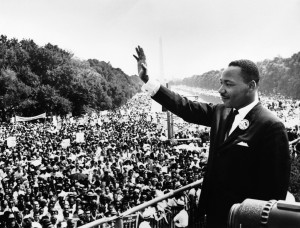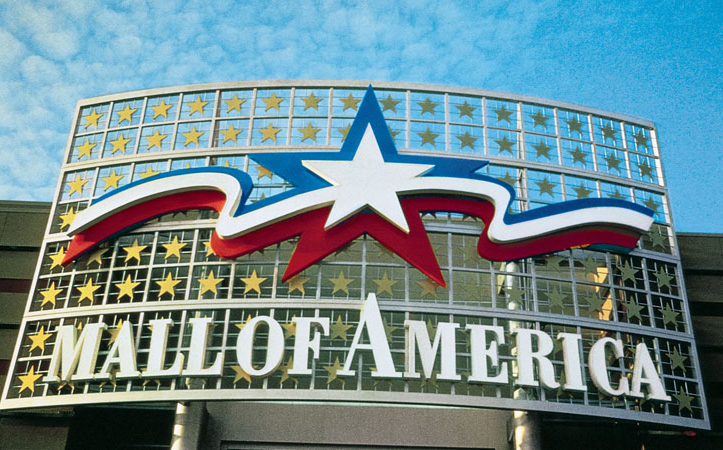
After the election, when conservatives reckon with the future of their movement, we must avoid comforting illusions such as that being advocated last week by Peter Spiliakos: that pro-Trump and anti-Trump conservatives need not worry about burying the hatchet and moving forward after 2016, because the only problem in 2016 is that we are merely “friends divided by prudential differences.” (After NBC released its notorious tape, Spiliakos’ tone has turned more sour, but he has continued to advocate pretty much the same view.) On the contrary, given the depth and intensity of the divide over Trump, the future existence of conservatism in any recognizable form is looking more doubtful every day.
The problem is not only that prudence is a moral virtue, so differences that are “only” over prudence are often of titanic importance. But let’s talk about that for a moment anyway, because the merely prudential difference is such a gulf that this alone would seem to threaten the conservative marriage.
NeverTrumpers generally contend that Trump was allowed to take the GOP nomination due to a catastrophic moral failure among Republicans, especially among those leading Republicans whose professional responsibility it was to be electoral gatekeepers and exercise the authority that was theirs by both law and custom to prevent race-baiting, dishonest, illiberal, misgynistic reprobates from acquiring the nomination. It is not clear to me how a political movement can contain those of us who see things this way and also those who think GOP leaders were faithfully doing their job by allowing Trump to take the nomination. Even if this is “only” a difference of prudential judgment, it reveals a fundamental divide over what politics is and what political parties and movements exist to do.
That fight is in the past, but the decision to support Trump now that he has the nomination is still present. Here again, NeverTrumpers view those who endorse Trump as failing (though to a lesser degree) to exercise the virtue of prudence; they seem to us to think that a very weak and tentative connection to a president is worth the catastrophic sacrifice of moral credibility and social solidarity voting for Trump entails. This, too, is “only” a difference of prudential judgment, yet one that would seem to indicate an almost total difference in our understandings of what politics is and how it works.
Consider judges as a case study, especially because “But, judges!” is by far the most common pro-Trump conservative argument. Trump was pro-abortion and, at a more general level, anti-rule-of-law right up to the moment when he decided he wanted to swindle the cheapest date in American politics, social conservatives. Five minutes after the election results are in, he will be pro-abortion and anti-rule-of-law again, and will appoint judges accordingly. To us NeverTrumpers, the inability of pro-Trump conservatives to see this seems to indicate that we are living in different political universes.
However, foreboding as all of this is, I cannot help but think the divide in conservatism may go even deeper. The deeper division between pro-Trump and anti-Trump conservatives may be one not of prudence but of principle—of ends, not just of how we connect means to ends.
What is conservatism for? It seeks to conserve something, obviously, but what? I am increasingly convinced that if pro-Trump and anti-Trump conservatives are so bitterly divided over how to conserve, it may be because we differ over what to conserve.
I will not presume to speak for the pro-Trump side. I will simply say that I do not understand how they can endorse Trump if they are seeking to conserve the same things I’m seeking to conserve.
For the sake of space, I will limit myself to one example. For the sake of everyone’s sanity, I will not use the example currently occupying our national attention. But it is an example representative of a foreboding of unbridgeable differences on a dozen other issues.
Whatever others may be trying to conserve, I am trying to conserve a polity that has been laboring, for two hundred years, to free itself from the legacy of racism, slavery, and ethnic oppression. Badly as we have often betrayed them, our national founding principles are clear on this point; so clear that Martin Luther King unreservedly took his stand upon them in fighting for civil rights. “America has written the negro a bad check,” he said, referring to the Declaration of Independence with its self-evident truths about the equality of all human beings.
Donald Trump has a decades-long record as a virulent racist and practitioner of racial discrimination in business. He refused, three times, to denounce the Ku Klux Klan. He later blamed that incident on a bad earpiece, but the video makes it clear this is a lie.
You can’t decline to oppose the KKK on national television and then just take it back. The damage to our polity is already done. The wave of openly racist support for Trump attests to this.
Ian Tuttle makes it clear why the fundamental principles of the American experiment are at stake:
Adherents of the Alt-Right not only conceive of the “Establishment” as traitorous; they also seem to think that liberal democracy itself was an abstraction tyrannically imposed on an unwilling populace. It wasn’t. It was a slowly and painfully forged response to centuries of challenges. The Western, liberal-democratic order is wracked with problems, of course; but it always has been. The question is, Has it been more fruitful, more liberating, more constructive in promoting the common good than have the various orders that came before it? And if so, is there a compelling reason for throwing it over in favor of the ancient belief that some men are, indeed, born with saddles on their backs, and a favored few born booted and spurred, entitled to ride them?
This is the question the Alt-Right poses. As it happens, it’s an old question, and one to which our forebears gave powerful answers. But every generation has to relearn them. The larger the Alt-Right grows, the clearer it is that ours hasn’t.
I don’t think Trump particularly likes the KKK. But I do think he wants the votes of their supporters. And I know he wants the votes of the larger pool of “alt-right” racists who live in their socio-political neighborhood.
That is detestable, but it is also politically consequential. Every increment of success for Donald Trump, every additional vote or endorsement, contributes to the relegitimization of white nationalism.
How many years did we labor, with how much painful sacrifice, to delegitimize white nationalist politics? Pro-Trump conservatives are throwing all that away. If conservatives vote Trump, how do they look their neighbors in the face and tell them we’re fighting for the conservation of the American experiment in equality and freedom for all people?
Or, to put a finer point on it for the post-2016 marital counseling: If significant numbers of conservative leaders endorse Trump, how can those of us who want to look our neighbors in the face and tell them we’re fighting for the American experiment in equality and freedom for all people continue to call ourselves “conservatives”?
Now multiply that by every other issue on which Trump tramples upon the principles of the American experiment.
I don’t know whether the marriage of American conservatism can be saved. I do know that there won’t be much hope for it if those who vote for Trump and those who vote for honor indulge the comforting illusion that we are only “friends divided by prudential differences.”


